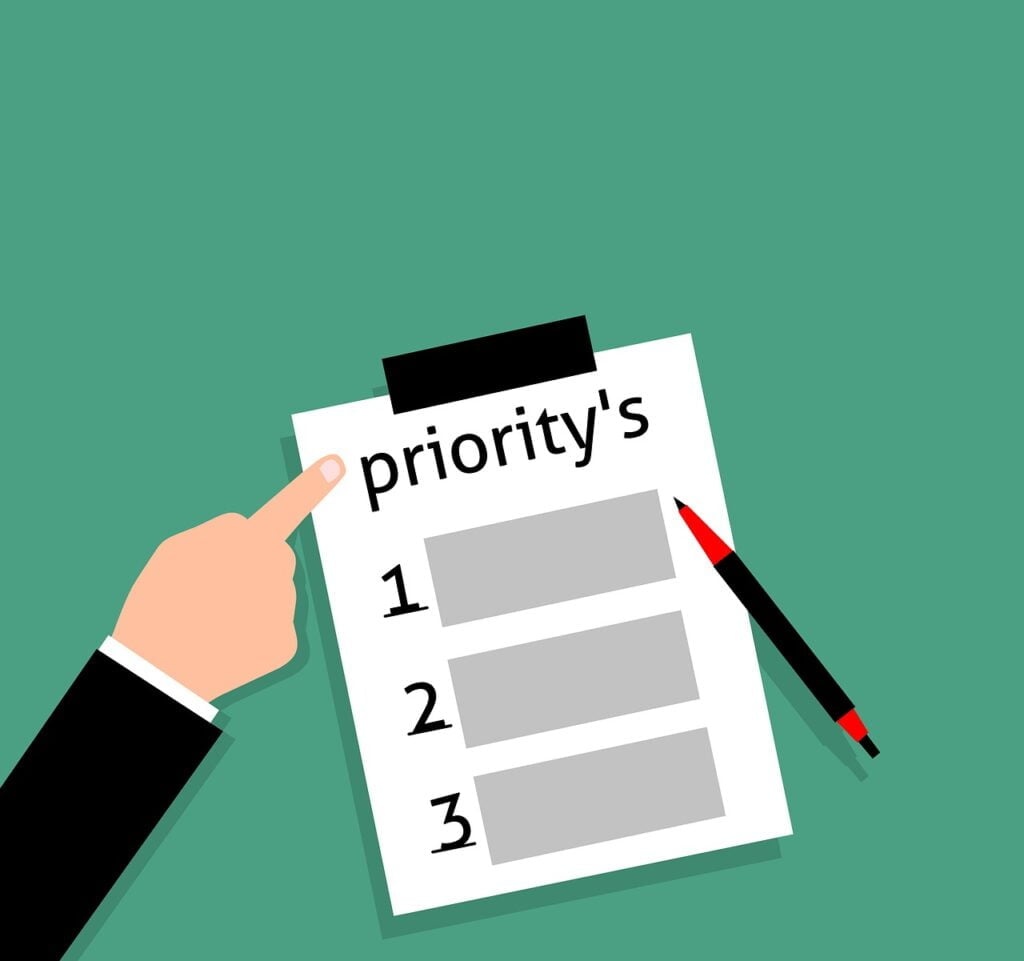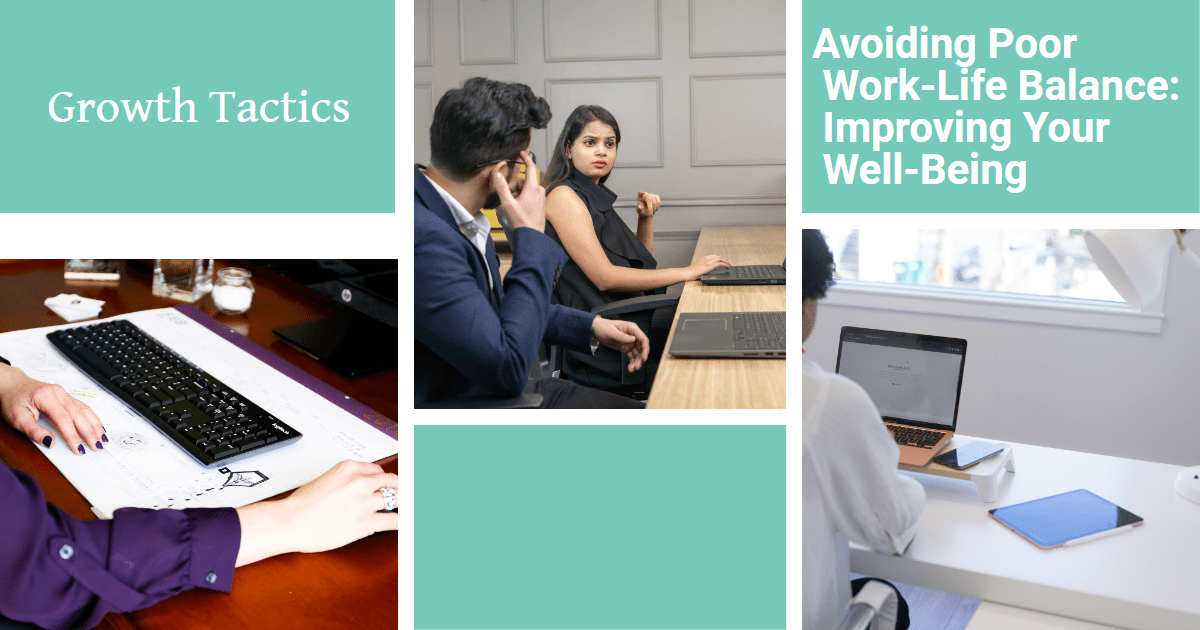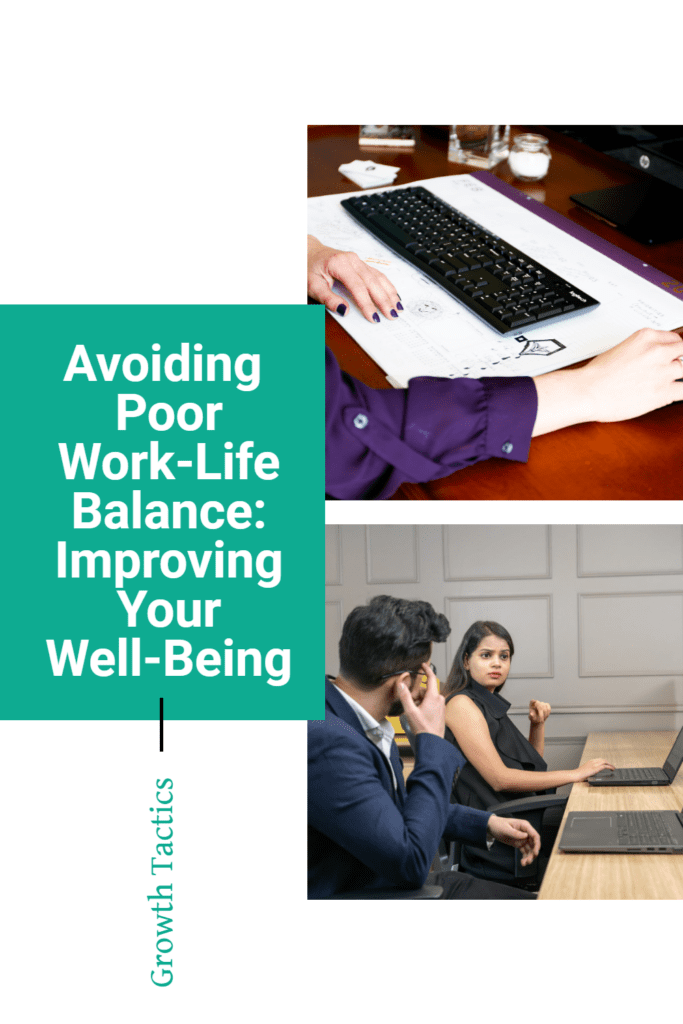Are you feeling stretched thin between work and personal responsibilities? Does the idea of achieving a healthy work-life balance seem like an elusive dream? You’re not alone. Many of us find ourselves struggling to juggle the demands of our careers and personal lives, leading to stress, burnout, and unhappiness. But fret not, because, in this article, we’ll explore the importance of work-life balance and provide practical tips to help you avoid a poor work-life balance. So, let’s dive in!
Jump To Section
Why Work-Life Balance Matters
The concept of work-life balance refers to finding the right equilibrium between our professional and personal lives. It’s about creating a lifestyle where we can excel in our careers while still having time and energy for the things that matter outside of work. Striking a balance between the two is crucial for several reasons:

1. Enhances Well-Being and Mental Health
Maintaining a healthy work-life balance has a significant impact on our mental and physical well-being. When we’re constantly overwhelmed by work-related stress and feel like we don’t have time for ourselves, it can lead to mental health issues such as anxiety and depression. Taking time for personal activities and quality time with loved ones allows us to recharge and improve our overall well-being.
2. Increases Productivity
Contrary to popular belief, working long hours doesn’t necessarily translate to increased productivity. In fact, overworking can often lead to burnout and a decline in performance. By achieving a better work-life balance, you can reduce stress, focus better during work hours, and ultimately enhance your productivity levels.
3. Improves Relationships
Neglecting personal relationships due to work commitments can strain our connections with loved ones. Building and maintaining strong personal relationships is crucial for our overall happiness and mental well-being. By finding a healthy work-life balance, we can spend quality time with friends and family, strengthening these important bonds.

Tips to Improve Your Work-Life Balance
Now that we understand the importance of work-life balance, let’s explore some practical strategies to help you achieve it. Here are ten tips to get you started:
1. Assess Your Current Situation
Let’s take a moment to dig into your current work-life balance. Are you finding yourself spending way too much time at work and neglecting your personal responsibilities and leisure activities? It happens to the best of us. But you know what they say, awareness is the first step towards change. By identifying the areas that need improvement, you’re already on your way to finding a better balance between work and life.
2. Set Clear Boundaries
Picture this: it’s your precious personal time, but you can’t stop checking work emails or taking work-related calls. Sound familiar? Well, my friend, it’s time to set clear boundaries. Establishing a line between your work and personal life is essential for maintaining sanity. Try to resist the temptation of being constantly available to work during your downtime. By clearly defining when you’re “on” and “off” the clock, you can create a sense of structure and protect your personal space from work invading it.
3. Prioritize Self-Care
Now, I want you to promise me something: make self-care a non-negotiable part of your routine. Yes, I mean it! Carve out time for activities that help you relax and recharge. It could be going for a walk, practicing mindfulness, or indulging in hobbies that bring you joy. Prioritizing self-care is not selfish; it’s a vital component of maintaining your physical and mental well-being. Trust me, you’ll be better equipped to handle the demands of work and life when you take care of yourself.
4. Utilize Flexible Working Options
Ah, flexibility, the knight in shining armor when it comes to work-life balance. If your job allows for flexible arrangements, seize the opportunity! Negotiate for flexible hours or explore the possibility of working remotely. These options can give you more control over your schedule and allow you to craft a better work-life balance. Imagine having the freedom to attend to personal commitments or relish precious moments with loved ones without feeling guilty about it. It’s totally worth pursuing, my friend.
5. Seek Support from Your Employer
It’s time to engage with your employer or HR department and have a good old chat about the importance of work-life balance. Let them know that you’re all about advocating for initiatives that promote employee well-being. Share your thoughts on the benefits of flexible working hours or policies that discourage overtime work. You see, companies that prioritize work-life balance tend to have more engaged employees and a healthier work culture. And who wouldn’t want that, right? So, go on and have that conversation. Your voice matters, and you have the power to make a positive change in your workplace.

6. Delegate and Prioritize Tasks
Now, listen up – it’s time to master the art of delegation. Trying to do it all on your own is a one-way ticket to Overwhelm City. Trust me, I’ve been there. So, here’s what you need to do: learn to delegate tasks and ask for help when needed. Don’t be afraid to reach out and share the load with your teammates or colleagues. Prioritize tasks based on their urgency and importance, and don’t be afraid to let go of non-essential commitments that might be nibbling away at your precious personal time. Remember, you’re human, not a superhero. So, take a deep breath, delegate, and free up some space for yourself.
7. Make Time for Activities Outside of Work
Ah, the sweet aroma of a well-rounded life. It’s time to schedule some quality “you” time. Set aside dedicated moments for hobbies, exercise, connecting with friends, or pursuing interests that make your heart dance with joy. Engaging in activities outside of work is crucial for maintaining a healthy work-life balance. So, go ahead and make it a priority. Whether it’s joining a yoga class, taking up painting, or setting up regular coffee dates with your pals, these moments of fulfillment will keep your inner flame burning bright. Trust me, your work will thank you for it.
8. Practice Mindfulness and Disconnect
Hey there! In our hyper-connected world, it’s crucial to take a step back, disconnect from technology, and truly be present in the moment. Let’s talk about setting those boundaries, shall we? One way to do this is by limiting your screen time and taking well-deserved breaks from technology. Yup, that means giving yourself permission to unplug from the digital frenzy every now and then. These precious moments of mindfulness can work wonders in reducing stress and enhancing your overall well-being. Trust me, it’s all about finding that sweet balance between being connected and being in tune with yourself.
9. Learn to Say No
Repeat after me: “No, thank you.” Feels liberating, doesn’t it? It’s absolutely okay to say no to additional work or commitments that might throw off your work-life balance. Your well-being deserves to take center stage, my friend. Learning to set boundaries and prioritize what truly matters to you is a game-changer. By saying no when necessary, you create space for the things that bring you joy and fulfillment. So go ahead, practice your “no” and discover the power of setting boundaries. You’re in charge.
10. Regularly Evaluate and Adjust
Here’s a little secret: achieving work-life balance isn’t a one-time gig. Think of it as an ongoing process, a journey of self-discovery and adjustment. Regularly take a step back, evaluate your progress, and make adjustments as needed. What works for someone else might not work for you, and that’s perfectly fine. Remember, balance means different things to different individuals. So, embrace your uniqueness and find what truly works best for you. Be open to adapting and trying new approaches along the way. It’s all part of the exciting adventure towards achieving that sought-after work-life harmony.
In Summary
- Assess your current work-life balance and identify areas for improvement.
- Set clear boundaries and prioritize self-care to maintain your well-being.
- Explore flexible working options and advocate for work-life balance initiatives at your workplace.
- Delegate tasks and make time for activities outside of work.
- Practice mindfulness and disconnect from technology.
- Learn to say no when necessary and regularly evaluate your progress.
By implementing these tips, you’ll be well on your way to achieving a healthier work-life balance. Remember, it’s not always easy, but the positive impact it can have on your well-being and overall happiness is well worth the effort. So, go ahead and take the first step towards a more fulfilling and balanced life!


